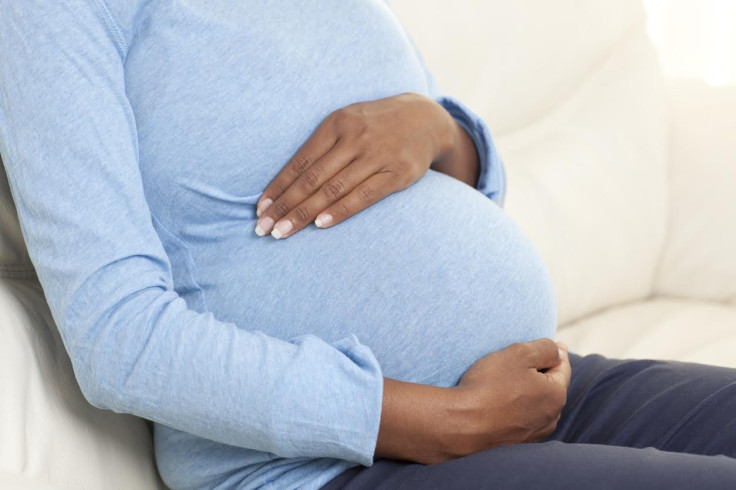Commercial surrogacy breeds exploitation, abuse and misery
The poster girl is a happy white woman making a childless couple happy, but the truth is far less palatable.

In January this year, the first surrogate baby was born into aristocracy. Viscountess Weymouth became the first member of British aristocracy to have a baby born by using the womb of another woman after doctors warned her that existing health problems could lead to fatal consequences in pregnancy.
In recent years Britain has seen a major growth in the number of surrogate babies born. The latest figures from the Ministry of Justice Family Court show that the number of parental orders – which transfer legal rights from the the surrogate mother to intended parents – made rose from 117 in 2011 to 241 in 2014, increasing to 331 in 2015.
A significant number of Brits go overseas to access surrogacy for the simple reason that many countries, such as California, Thailand, and Georgia allow profit to be made from renting the inside of women's bodies. So far, the UK does not allow commercial surrogacy, but it is creeping into the back door. 'Reasonable expenses' are allowed up to £15,000, which, even for women not living in dire poverty can be a life-changing amount.
Statistics gathered by Families Through Surrogacy, a consumer-based non-profit organisation focused on bringing together surrogates, intended parents and families found that there was a 180% growth in the inflow of UK prospective parents who were seeking surrogacy between 2011 and 2014, with more than 1,000 couples having travelled to a total of 57 destinations.
The UK even has its own specialist in surrogacy law. Nicola Scott, a solicitor at law firm Porter Dodson and has been working in the niche field of fertility for eight years. Scott advises intended parents with legal agreements between themselves and the surrogates, and advises on issues facing those bringing babies back to the UK from overseas. There is no such expert advocating for the women who give birth to surrogate children.
Why are we seeing both a growth and a normalisation of what I call 'reproductive trafficking' in the UK? Because in this increasingly neo-liberal world, women's bodies are commodified and sold on the open market.
As with prostitution, selling and renting female flesh is a profitable business. The 'intended parents' who create the demand are told, or choose to believe, that the surrogates are making a clear and informed choice, and that the money they earn can be 'life changing', especially for women in developing countries.
Commercial surrogacy breeds exploitation, abuse and misery. Although the poster girl of surrogates is typically a white, blonde, smiling women who is carrying a baby in order to make a childless couple happy, the truth is far less palatable.
Poor and desperate women are often pressurised or even forced by husbands and criminal gangs into renting their wombs
Poor and desperate women are often pressurised or even forced by husbands and criminal gangs into renting their wombs to couples or single people. The social acceptance of this practice will perpetuate the notion that the wombs of poor women can be used as a service.
Class and racial divisions between surrogates, egg donors and the intended parents are often stark. Surrogates tend to be working class and to have already had their own children, whereas the egg donor will likely be a college graduate from an upper-class background who is considered bright and attractive. They generally earn significantly more than the surrogates.
While the gestational surrogates tend to be poor women disadvantaged in many ways, egg donors are often chosen for their conventional good looks, and a lack of mental and physical ill health in their lineage. In the US, white, young college students are favoured.
Class and racial divisions between surrogates and egg donors are often stark. Surrogates tend to be working class...whereas the egg donor will likely be a college graduate from an upper-class background who is considered bright and attractive.
As well as the growing social acceptance of surrogacy, the increase of older women having surrogate babies, the pursuit of a career before starting a family, all-time high divorce rate and growing use of internet dating sites among women aged over 50 means older people are meeting new partners in later life and decide that if they are too old to have a baby the conventional way they will pay for the services of another woman.
Scott, who has seen surrogacy cases requiring specialist legal advice quadrupling over the last eight years, says that the UK is very resistant to making surrogacy a commercial industry, but in almost the same breath admits that, "As time goes on it's probably going to be harder to find surrogates that are of the right child bearing age and of the right health status and that have completed their families."
The myth that surrogates choose to enter into such an arrangement out of bleeding-heart altruism is a persuasive one, but it is far from the truth. If the UK allows commercial surrogacy to flourish, more selfish folk who do not wish to endure the inconvenience of the pregnancy – or single straight men and gay male couples who feel they have the right to biological children despite not being able to have their own (or choosing not to adopt) – will increase demand for this exploitative industry built on billions of dollars.
The rift between the rich white women who are outsourcing their pregnancy, and the desperate subjugated women who are seen as nothing but a vessel in which to grow their child, is huge. Surely the UK can take a stand against what is the buying and selling of women's reproductive integrity?
Julie Bindel is a journalist, writer, broadcaster and researcher, and writes regularly for The Guardian, the New Statesman, Sunday Telegraph and Standpoint magazines. Julie is a Visiting Researcher at Lincoln University. Follow @bindelj
© Copyright IBTimes 2025. All rights reserved.






















